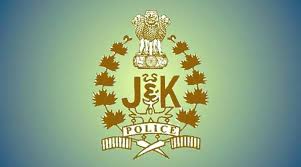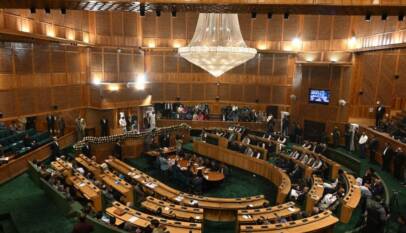IUST’s Journalism Dept celebrates World Television Day
IUST’s Journalism Dept celebrates World Television Day
Noted expert Prof. Arbind Sinha delivers special lecture
Awantipora, November, 21: On the occasion of the World Television Day, the Department of Journalism and Mass Communication (DJMC), Islamic University of Science and Technology (IUST) organized an online interactive session Sunday, which was attended by scores of participants including media academicians, media professionals, scholars and students from across the country.
The online event was organized to revisit the journey of television as a path-breaking innovation in communication technology and its relevance as a dominant form of mass media in contemporary media landscape.
Speaking on the occasion, the expert speaker, Prof Arbind Sinha, an expert of Development communication who is counted among important figures in the introduction of television for development communication in India expressed his views about the importance and relevance of television as a dominant mode of mass media.
While tracing the introduction and growth of broadcast television in India, Prof Sinha stated, “The beginning of television in India came as a vibrant technical impetus to the development communication and the rapid spread of broadcasting to the remotest parts of the country had a robust impact on the inclusive socio-economic development.”
Commenting about television as a technological innovation in the field of development journalism in the country, Prof. Sinha said, “The era when television broadcasting started in India, none would have imagined that the medium which was perceived as a community medium for education and awareness would end up being in our pockets on digital gadgets”.
He noted that digital modes are simply technological advancements in communication and television will continue to dominate the information landscape.
Prof. Sinha, however, admitted that currently, television as a mass medium has lost its ideal sense of direction under the corporate and political influences, globally.
He stated that such strong corporate influences have led to intense production of the content due to demands for higher revenue but at the same time have led to the degradation in the quality of content.
Responding to the questions about current opportunities in the field of television broadcasting, Prof Sinha advised the media students to look for career options in domains concerning development journalism and rural market. “Governments, International Organizations and NGOs require professionals for effective mass communication for implementing their programmes and policies which makes it a fertile ground for aspiring media professionals”, Prof Sinha added.
Associate Dean, School of Humanities and Social Sciences, Dr. Munejah Khan, while speaking on the occasion invoked the phrase coined by the Canadian communication theorist Marshall McLuhan “medium is the message” and stressed on the need to educate students about the nature and source of content while engaging with abundance of news content on mushrooming news channels.
She appreciated the department’s efforts in organizing such an engaging and interactive event.
Earlier Head of the Department, DJMC Dr. Mujeeb Liyakat, while expressing his views on television as a mass medium and the importance to celebrate World Television Day during the welcome and inaugural address said, “The reason behind celebrating this day is not only revisit the journey of television as a pathbreaking technological innovation in mass media but also to recognize its ever-increasing role as a tool to carry on with journalism for development.” He further added that the Covid-19 situation has taught us that how mass mediated communication proved determinant in sensitizing people against a horrible pandemic.
“In contrast to print and digital modes of communication, television continues distinguishes itself as a powerful medium by nurturing community-like feeling among the audience in a society,” Dr. Mujeeb added.
Dr. Mujeeb further stated that scholars and professionals in the field must draw from the existing theoretical concepts associated with television in relation to development communication which according to him are instrumental in conceptualizing the role of television as a significant mass medium.
Sr. Assistant Professor DJMC and Session Moderator Dr. Monisa Qadiri, underlined the significance of television as a medium particularly its role in politics, development and even in conflicts like Vietnam and Gulf war in her introductory remarks.
She further noted “the potential of television in political communication and campaigns that has been seen from the first televised US Presidential debates right from their beginning in 1960”
Dr. Qadiri, who is also the Media Advisor to VC further stated, “Given the grassroot possibilities through television, media researchers must attempt a deeper and critical engagement towards understanding the new paradigms and nuances in the contemporary 24*7 television news culture.”
More than 100 participants had registered for the event and saw a highly engaging participation from everyone.
Multimedia journalist Basharat Rashid who attended the lecture acknowledged the significance of these resourceful sessions and appreciated the efforts of DJMC and IUST for such extension activities.
Handwara Police Crack Down on Tehreek-i-Hurriya-G Network
Handwara,, April 26,: In a major crackdown against the banned outfit Tehreek-i-Hurr…











